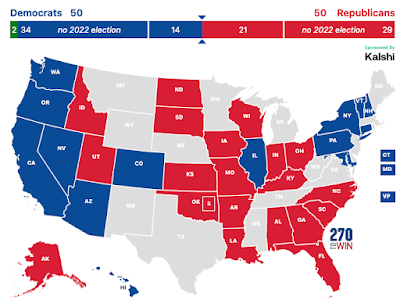The Paul Ryan Pick: Clarifying or Insurgent? Offense or Defense?
 |
| Not pictured: "Filing tax returns like Mitt Romney for Dummies" |
Mitt Romney’s choice of Paul Ryan says many things about the
state of the campaign. At first glance, one must agree with Nate Silver, it
doesn’t seem like a choice a candidate confident in his chances would
make. However, the right is elated that Boston picked a certified,
card-carrying fiscal conservative – and crowds have grown as the Romney
campaign finally has some juice.
At the same time, the Ryan pick has the potential to
undermine Romney’s key argument. This is that the most important issue is the country’s
poor economic performance, which he can change, and nothing else matters. In
her book The
Message Matters: The Economy and Presidential Campaigns, Lynn Vavreck argues
for the primacy of the economy in the general election. Campaigns then, fall
into two categories: clarifying and insurgent. A clarifying campaign has the
economy on its side. This can be an incumbent party riding an economic wave
(Clinton in 1996), or the opposition party during poor economic conditions
(Obama in 2008). An insurgent campaign, on the other hand, looks to change the
conversation by pivoting the election away from the economy and focusing on
other issues (G.W. Bush in 2000). Vavreck goes into detail on every modern
general election, but spoiler alert: it is advantageous, significantly so, to
be the clarifying campaign.
Which brings us to today. The economic numbers that have
been trickling in paint a grim picture of the Obama economy. There were winds
of a “Recovery Winter” a few months back, but that growth has sputtered.
Unemployment remains above 8%. There are no clear signs that the economy is going
to take off before November. So far, Mitt has been content to let this play
out. He has released a paltry portion of policy positions and played his cards
close to the vest. Then, on Saturday, he
makes a vice presidential pick right out of the insurgent handbook.
Paul Ryan is an insurgent pick because his fully-loaded
fiscal plan changes the discussion. Instead of discussing Mitt Romney’s tax
returns, we’re now discussing what would happen to Mitt’s taxes under the Ryan plan. I’ve watched every
political move Mitt Romney has made for a decade, and enough GOP primary
debates to make my eyes bleed, but I couldn’t pin down his position on Medicare
if you paid me. Paul Ryan, on the other hand, is an entitlement reform
crusader.
So the question becomes: “What is Boston doing?”
I can offer two explanations: First, they think they can
have it both ways. As Kevin Collins
notes, they’re going to adapt Ryan to Romney’s vague form that is friendlier to
a clarifying message. Or, they’re spooked. All the talk of Bain Capital, Mitt’s
tax returns, and the foreign trip created a sense of desperation and Ryan is a life-raft. This would specifically be the case if they think Chicago's constant attacks on Bain Capital have undermined Romney's key qualification as job creator.
In
essence, these two explanations track back to the insurgent/clarifying divide.
Boston knows that they want to be on the clarifying side of the debate. The
poor economy is Romney’s friend after all, and Boston thinks that Ryan is a star
that will help it make the argument.
This
is not an easy play. Boston is adding an asset, but not utilizing its abilities.
It reminds me of an NFL team hiring a star offensive coordinator, but putting
him in charge of the defense. Yes, coaching is still coaching, but Romney is asking Ryan to be someone he's not, a bland number-two that follows orders. Romney probably wanted to pick Tim Pawlenty (or another harmless Republican in his mold), but felt he had to make a bigger splash. Romney now faces an uphill climb to the clarifying perch, and even though Ryan is a star, he will be baggage on that journey.

